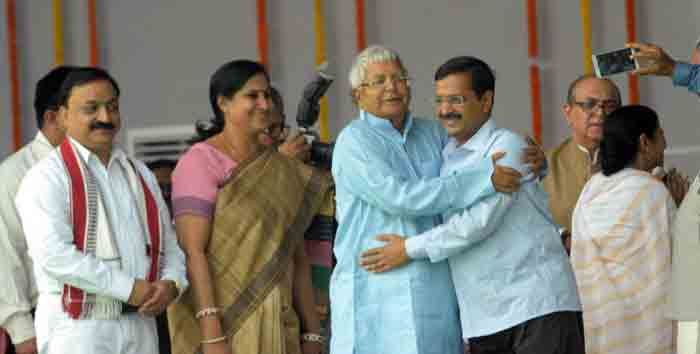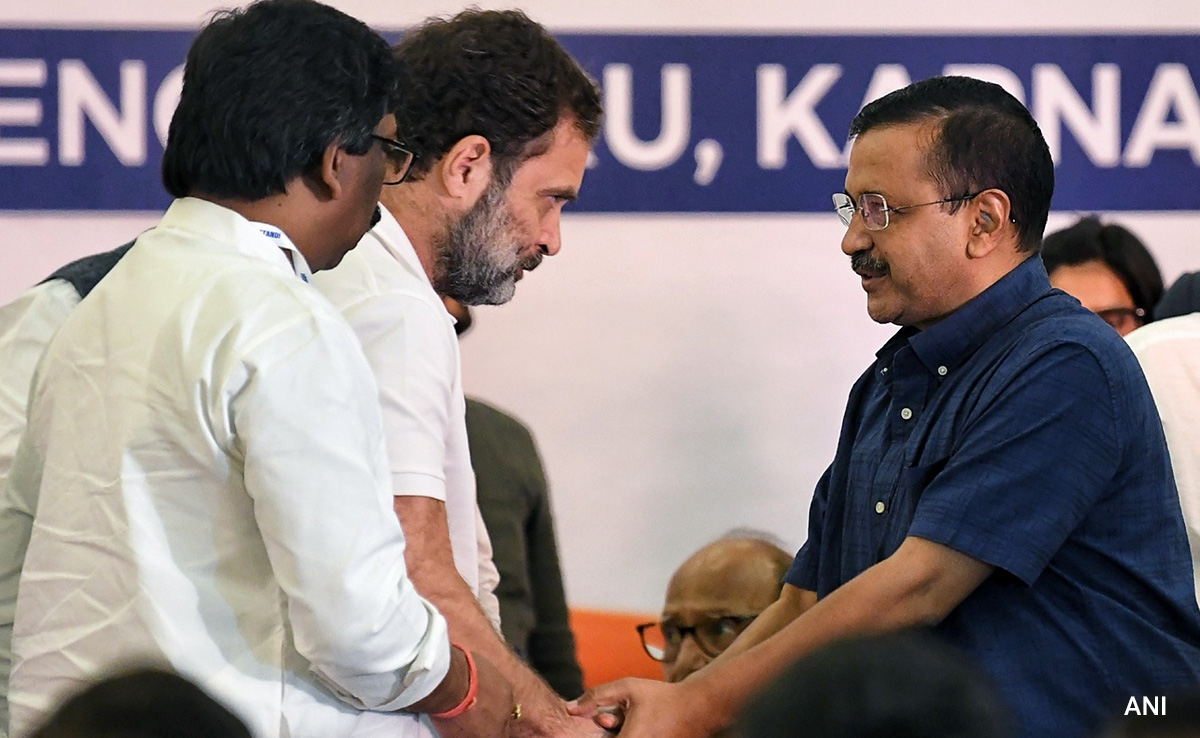Arvind Kejriwal is at it again. The Aam Aadmi Party (AAP) founder, once hailed as a crusader against corruption, has now been reduced to making irrelevant, attention-seeking statements that only expose his hypocrisy. Recently, he issued two “nationalist” demands: one, why the Modi government did not retaliate against the Trump administration’s 50% tariffs by slapping 100% duties on American goods; and two, why the Centre has not arrested top Congress leaders facing corruption charges in the National Herald case.
At first glance, these demands may sound bold. But scratch the surface and they reveal nothing more than Kejriwal’s familiar brand of political provocation—designed not to serve the nation, but to keep himself in the headlines.
If Kejriwal were serious, he would have begun by severing ties with the Congress and withdrawing AAP from the INDIA alliance. But he hasn’t. Instead, he continues to stand shoulder-to-shoulder with Rahul Gandhi, who recently insulted the Election Commission—a constitutional body—with his reckless allegation of “vote chori.” Kejriwal’s selective outrage exposes his real intent: not nationalism, but political survival.

The truth is simple. Kejriwal, once an IRS officer who rode on Anna Hazare’s anti-corruption movement, abandoned both his “guru” and the cause midway to float a political party. He first promised to expose and prosecute Congress leaders, only to later join hands with the very same party to form his Delhi government. The same man who shouted against graft did not hesitate to embrace convicted politicians like RJD chief Lalu Prasad Yadav. With such a record, his calls today for arresting Congress leaders sound laughable.
Kejriwal himself stands tainted. He is the prime accused in the multi-crore Delhi liquor scam and is currently out on bail. He faces credible allegations of receiving dubious foreign funding, raising serious concerns about his links to forces inimical to India’s national interests. His government’s track record in Delhi is marred by mismanagement, corruption, and failed promises, leaving him with little credibility in the public eye.

Yet here he is, trying to lecture the nation on tariffs, foreign policy, and corruption. Irony could not be darker.
What makes Kejriwal’s newfound “nationalism” even more hollow is his silence on issues that truly mattered. When 26 innocent tourists were brutally killed in the recent terror attack in Pahalgam, where was Kejriwal? He did not visit victims’ families. He did not condemn the attack. He did not even speak when Congress and its allies—DMK, RJD, TMC—cast aspersions on India’s armed forces after they struck terrorist bases of Jaish-e-Mohammed and Lashkar-e-Taiba across the border.

If he were a true nationalist, he would have at least criticized the Congress for parroting Donald Trump’s dubious claims about “stopping the four-day conflict”, where Pakistan lost multiple aircrafts. Instead, he chose silence, unwilling to upset his political partners.
Kejriwal’s recent demands—100% tariff retaliation against the US, and immediate arrests of Congress leaders—are therefore not acts of statesmanship but stunts. They are calculated attempts to project relevance in national politics after AAP’s steady decline and his own loss of credibility.
India cannot afford leaders who wake up from political hibernation only to play spoiler with reckless statements. National interest cannot be reduced to political theatre. Kejriwal’s posturing is neither nationalist nor principled—it is pure opportunism.
The man who once promised to cleanse politics has himself become a symbol of duplicity. And no amount of empty noise against Modi or Congress will hide the fact that Arvind Kejriwal today is a leader without credibility, a politician whose words ring hollow, and a man whose relevance in Indian politics has long expired.





